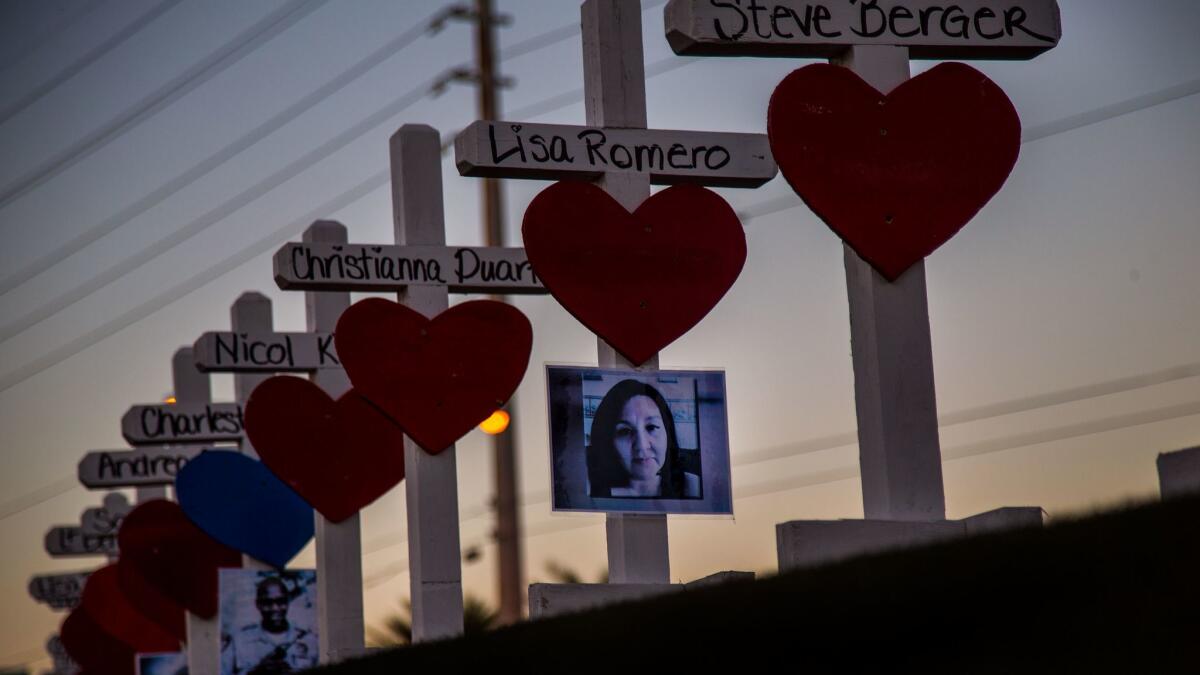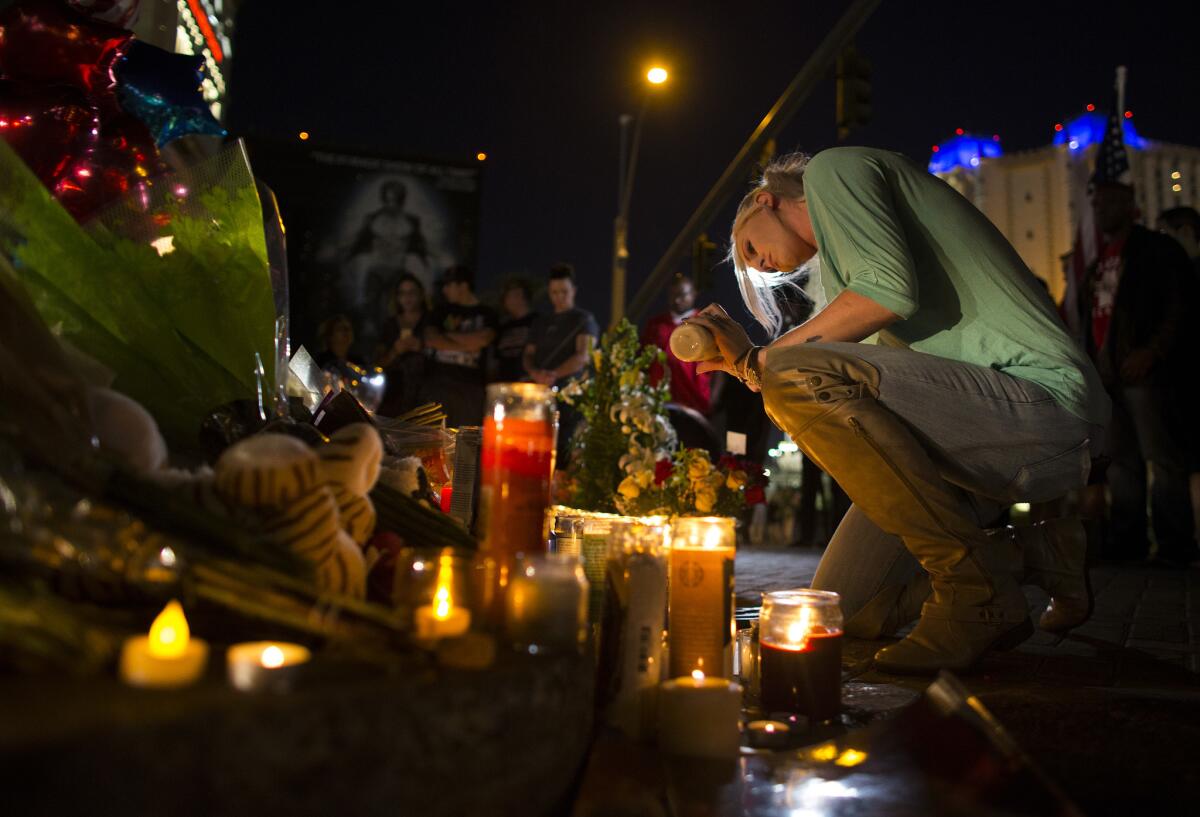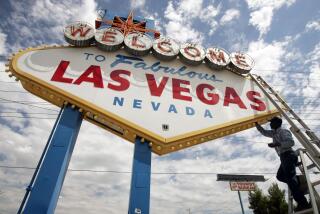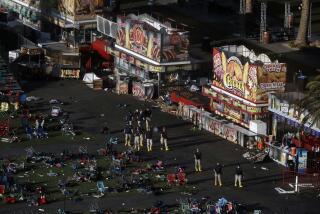The geography of death in Las Vegas: Remembering the 58 who died

A pipefitter from Riverside, a limo driver from Reno, a teacher from Lancaster, a hockey mom from Alaska, a nurse from Tennessee.
Fifty-eight people who came to dance and groove, bound only by a common love of country music, were killed by an unseen gun in the night, nearly a quarter-mile away.
The death toll from Sundayâs massacre in Las Vegas cut through a cross-section of America. The fallen had come from 14 states and two Canadian provinces. More than half, 33, were from California.
They were young adults, middle-aged parents and seniors â most of all, they were music lovers, drawn to the desert for three days of their favorite country artists.
Whatever the shooterâs motive, his sniper attack didnât strike any particular ideology or ethnicity or religion or sexual orientation. His was an act of abhorrent cruelty leveled simply at humanity, at us all.
At husbands who would die protecting their wives. At strangers who would cradle the dead. At people who would fall alone.
They had no way of knowing someone was targeting them from the 32nd floor of a luxury hotel.
The bullets bit the pavement, sounding like firecrackers. They didnât signal anything bewildering as the music played in the glitter of a Vegas night. Only when the blood started to run and people fell helplessly did the terror announce itself.
Around the country and beyond, 10 minutes of gunfire shattered families and towns.
âHereâs to 23 wonderful years and looking forward to 23 more,â Laurie Beaton had just posted on Facebook, as she and her husband, Jack, celebrated their anniversary. They had come from Bakersfield.
Less than an hour later, Jack was suddenly shielding her from heavy gunfire, pulling her down and lying on top of her.
âLaurie, I love you.â he said.
âI love you too,â she said.
That was the last she would ever hear from him.
When Jordan McIldoon, a 23-year-old Canadian and self-described âcowboy boot, tattoo-covered redneckâ who loved the outdoors was hit, Heather Gooze stepped in to help. The bartender had never met him.
âI felt his fingers, like, tighten and then loosen,â Gooze told the CBC.
When McIldoonâs phone rang in his pocket, she answered and learned his identity from the friend on the line. Gooze wrote McIldoonâs name on his arm, then searched for his family on Facebook.
His mother soon called, and Gooze promised she would stay with her son. She did for five hours.
âWe had only one child,â Al and Angela McIldoon said later in a statement from British Columbia. âWe just donât know what to do.â

Sent to follow the long trails of Sundayâs massacre, I sat earlier this week with the mother of Adrian Murfitt in Anchorage as she held back tears and struggled to understand why this stranger had killed her son, and how he could be equipped to cause such mass casualties.
âI cannot believe when I found out about the guns and the way he altered those to be like machine guns,â she said, âhow that can be legal to any kind of private citizen.â
In the senselessness of such murder, journalists strain to find meaning. We didnât want to just show the horror wrought by the gunman. We wanted to pay tribute to those who died for no good reason.
So we turned to the victims and the lives they lived. Eleven reporters set out to learn about these waitresses, financial advisors and hairstylists, about these sisters, fathers and grandmothers.
In the last seven years, I have written about mass shootings in Tucson; Seal Beach; Aurora, Colo.; Newtown, Conn.; Killeen, Texas; Roseburg, Ore.; San Bernardino; Orlando; and now Las Vegas.
In a nation so divided over guns, the sickening truth is that weâre just waiting for the next one.
ALSO
A brotherly journey from Alaska to Vegas ends in sorrow
Las Vegas shooting victims: Portraits of the fallen
More to Read
Sign up for Essential California
The most important California stories and recommendations in your inbox every morning.
You may occasionally receive promotional content from the Los Angeles Times.











